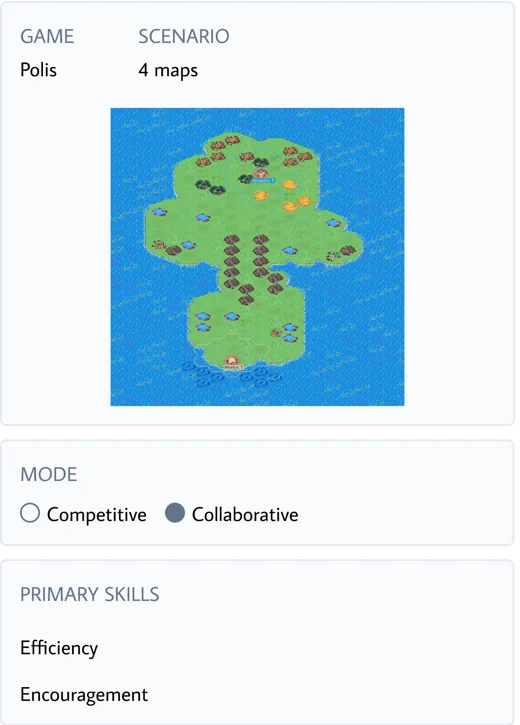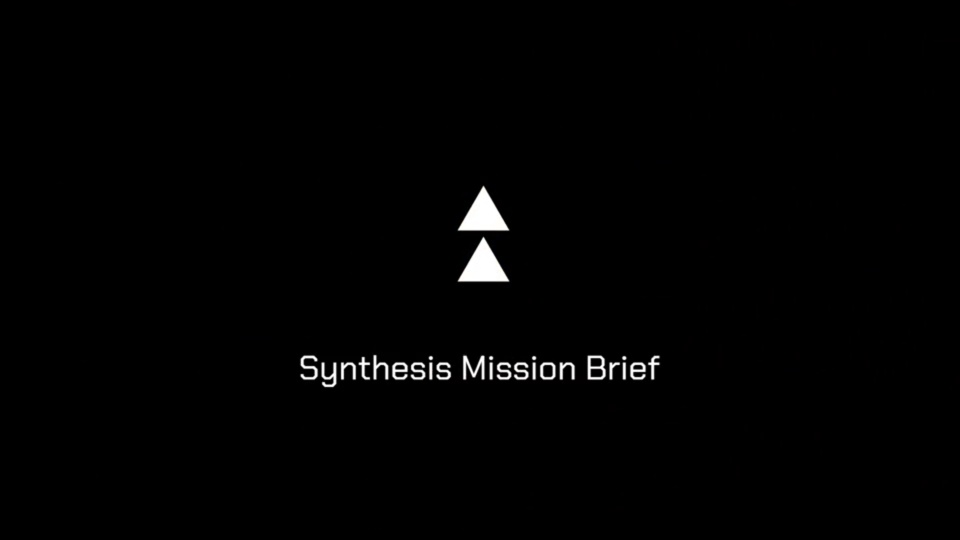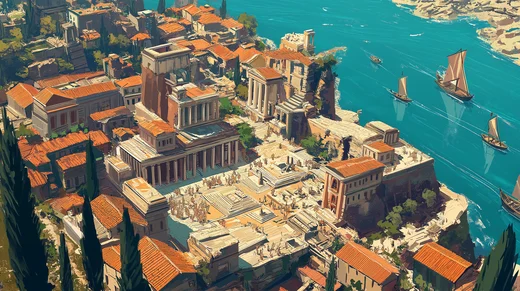本周,Synthesis 将带领学生在 Polis 中展开极速挑战,同时探索古希腊哲学的智慧。通过团队合作与策略,学生将努力在排行榜上取得好成绩。同时,讨论环节将让学生思考古希腊伦理如何与现代生活产生共鸣,激发他们对“卓越”(arete)和“傲慢”(hubris)等概念的深刻理解。通过这些活动,学生不仅能够提升团队协作能力,还可以扩展他们对古代哲学的认知。
This week at Synthesis, students will engage in a speedrun challenge in Polis while exploring the wisdom of ancient Greek philosophy. Through teamwork and strategy, they will aim to achieve high rankings on the leaderboard. The discussion session will encourage students to reflect on how ancient Greek ethics resonate with modern life, deepening their understanding of concepts like “arete” (excellence) and “hubris” (pride). These activities provide students with an opportunity to enhance their collaboration skills and broaden their philosophical insights.
我们还将于周日下午5点(北京时间)试行一个新的讨论时间。如果这个时间对您的孩子合适,我们期待他们的参与。
We’re also trialing a new Discussion time on Sundays at 2am PT. If that’s an appealing time for your child, we hope to see them there.
游戏 | Play
城邦 | Polis
Synthesis 热爱挑战。上周,在2174场比赛中,只有52支队伍能够解决最终场景。然而,本周我们反其道而行之:所有队伍都能够解决所有场景。这意味着排行榜不会记录胜利,而是追踪速度。极速挑战赛考量的是一支队伍完成挑战的速度。在 Polis 中,快速获胜意味着团队合作、清晰沟通和深刻的策略。队伍可以反复挑战同一个地图,每次不断进步。或者,他们可以继续前往下一个地图,从头开始。目标?让您的队伍登上排行榜。如何实现?这就是本周的真正难题。
Synthesis loves a good challenge. Last week, only 52 teams out of 2174 games were able to solve the final scenario. This week, however, we’re inverting that constraint: all teams will be able to solve all scenarios. That means that the leaderboard won’t be tracking wins. Instead, it will be tracking speed. A “speedrun” measures how quickly a team can complete a challenge. And in Polis, to win quickly means effective teamwork, clear communication, and insightful strategy. Teams can play the same map again and again, improving each time. Or, they can move ahead to the next map and start over. The goal? Get your team on the leaderboard. How? That’s the real puzzle this week.

游戏:城邦
场景:4张地图
模式:⚪竞争 🟢合作
主要技能:
效率、鼓励
GAME: Polis
SCENARIO: 4 maps
MODE: ⚪Competitive 🟢Collaborative
PRIMARY SKILLS:
Efficiency, Encouragement
反思 | Post-play
以下是一些后续反思问题,如果您希望与您的孩子讨论这次经历的话。
Here are some follow-up reflection questions, in case you’d like to discuss the experience with your child.
- 您的队伍是前进到下一个地图,还是反复挑战同一个地图以改进表现?这是正确的决定吗?
Did your teams advance to the next map or replay the same map in order to improve? Was that the right decision? - 一个团队如何才能更快完成?是领导力问题还是个人动力决定了结果?
What can a team do to work faster? Does it come down to leadership or individual motivation?
任务简报 | Mission Brief
感兴趣的家长可以点击此视频,观看本周学生们在课程前看到的任务简报:
For the curious parent, you can watch the pre-session Mission Brief the students see this week by clicking on this video:

讨论 | Discussions
古希腊哲学 | Philosophies of Ancient Greece
为了加深 Polis 的体验,本周的讨论环节聚焦于古希腊哲学。但请放心——这并不是一堂简单的历史课。相反,这是一个讨论古希腊伦理在现代如何产生共鸣的机会。个人野心是否与“arete”(卓越)的概念相冲突?社交媒体是“hubris”(傲慢)的例子吗?这些将是许多学生的新术语,因此我们的目标并不是让他们掌握,而是引导他们思考这句谚语:越是变化,越是相同。
To deepen the Polis experience, our Discussion session this week focuses on ancient Greek philosophies. But let’s be clear — this isn’t a simple history lesson. Instead, it’s a chance to discuss the ways that ancient Greek ethics resonate in modern day. Does personal ambition contradict the concept of “arete”? Is social media an example of “hubris”? These will be new terms for many students, so the goal isn’t mastery; instead, it’s an evaluation of an adage: the more things change, the more they stay the same.

讨论介绍 | Discussion Intro
对于好奇的家长,您可以点击观看本周学生看到的讨论简报视频:
For the curious parent, you can watch the pre-session Discussion Brief the students see this week by clicking on this video:

